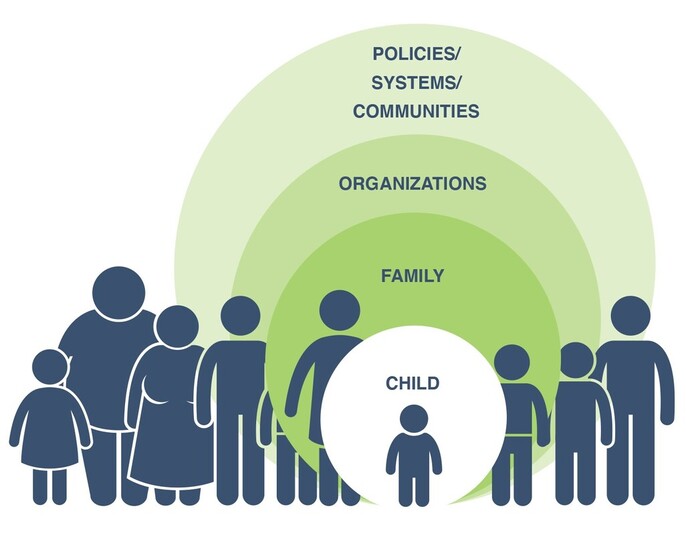|
ACEs data highlights the significant impact trauma can have on individuals. But we also know, more than ever before, that these outcomes can be prevented.
Washington State demonstrated that a comprehensive approach to educating communities and empowering local leaders to take action reduces the rates of childhood trauma and health problems in the next generation. As community members, professionals, parents, advocates, educators, faith leaders, judges, business leaders, mentors, policymakers, philanthropists, and grandparents, we have a responsibility to create the conditions for people to heal and thrive. It starts by prioritizing our own well-being as we build meaningful relationships with those we interact with and advocate for changes that can improve collective well-being. |
If you have experienced trauma and are seeking support, please contact 211 for services in your area. |

Researchers are identifying opportunities to prevent and mitigate the harms of ACEs at all levels of our society. These strategies focus on helping parents bear the load of stress, as well as promoting safe, nurturing, and equitable environments for kids to learn and play and for families to thrive together. Shifting our systems to promote these opportunities at all levels of our society can amplify the impact of reducing ACEs in Iowa.
Preventing ACEs
The CDC provides the following framework for how to prevent ACEs. Each strategy and evidence for it is outlined in this recently published article.
Iowa's efforts
Iowa ACEs 360 works with partners across multiple sectors to make system and practice changes that can help children and adults heal and prevent ACEs in future generations. We encourage everyone to join us.
How you can respond
|
|

